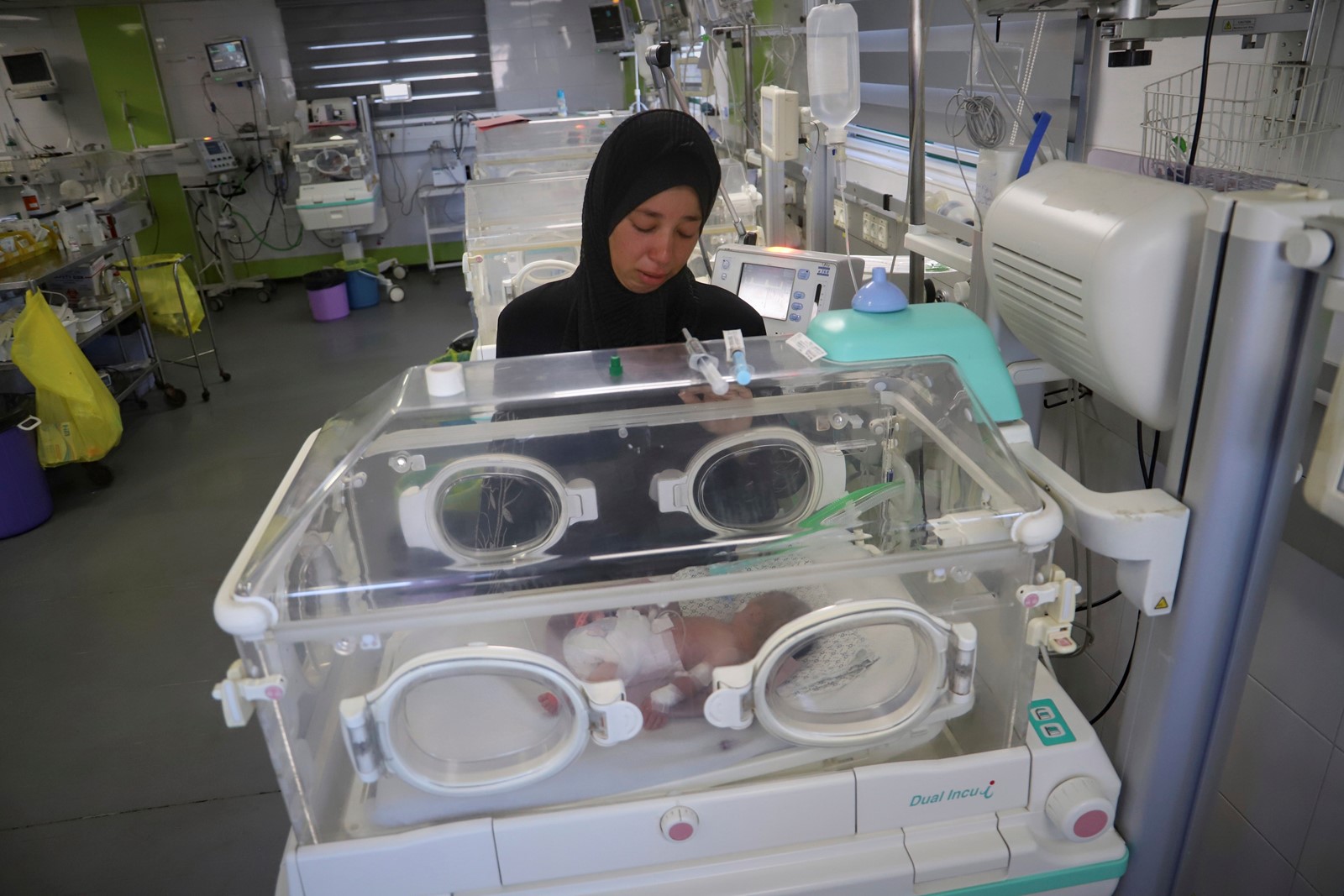
KHAN YOUNIS, Gaza Strip — Seham Fawzy Khodeir watches as her son lies inside a dilapidated incubator and listens to his faint cry, mixed with the muted sound of the equipment.
The mother of six is increasingly concerned about the survival of Hisham al-Lahham, who was just days old, breathing with the help of equipment and being fed through a tube in his tiny nose.
Most alarming is that the medical-grade formula he needs to survive is running out.
“There is no milk,” the 24-year-old mother told The Associated Press. He needs it to “to get better, to live and to see life.”
Hisham is among 580 premature babies at risk of death from starvation across the war-battered Gaza Strip, according to the Gaza Health Ministry. Khodeir and others blame Israel’s blockade for the plight of their children. Doctors say that although some formula has been delivered, the situation is dire. Their desperation comes as the war in Gaza has been overshadowed by the Israel-Iran war.
“These babies have no time … and no voice,” said Dr. Ahmed al-Farah, head of the pediatrics and obstetrics department at Nasser Hospital, the main medical facility still partially functional in sou
Khodeir’s son is one of 10 babies in incubators at Nasser’s neonatal intensive care unit. Last week, al-Farah rang the alarm, saying the hospital’s stock of medical-grade formula was “completely depleted.”
He said the tiny babies who relied on it would face “an avoidable disaster” in two to three days.
His pleas were answered, in part, by the delivery of 20 boxes of formula sent over the weekend by a U.S. aid group, Rahma Worldwide. The new delivery is enough to cover the needs for the 10 infants for up to two weeks, al-Farah said.
Al-Farah, however, expressed concern about future deliveries, saying that it wasn’t guaranteed that more formula would be allowed into Gaza.
“This is not enough at all,” he said. “It solved the problem temporarily, but what we need is a permeant solution: Lift the siege.”
Meanwhile, fortified formula required for newborns is already out of stock at Al-Rantisi Hospital in Gaza City, its director, Dr. Jamil Suliman, said.
“Many mothers are unable to breastfeed due to severe malnutrition,” he said, warning of a looming crisis.
Infants are among the hardest hit by Israel’s blockade, which started on March 2 with the complete ban of any food, water, shelter or medication.
Under mounting international pressure and repeated warnings of famine from the United Nations, Israel began allowing what Prime Minister Benjamin Netanyahu called “minimal” aid, starting May 19.
Since then, more than 1,000 tons of baby food, including formula, have entered Gaza, according to COGAT, the Israeli defense agency in charge of aid coordination in the Palestinian territory.


 PREVIOUS ARTICLE
PREVIOUS ARTICLE
